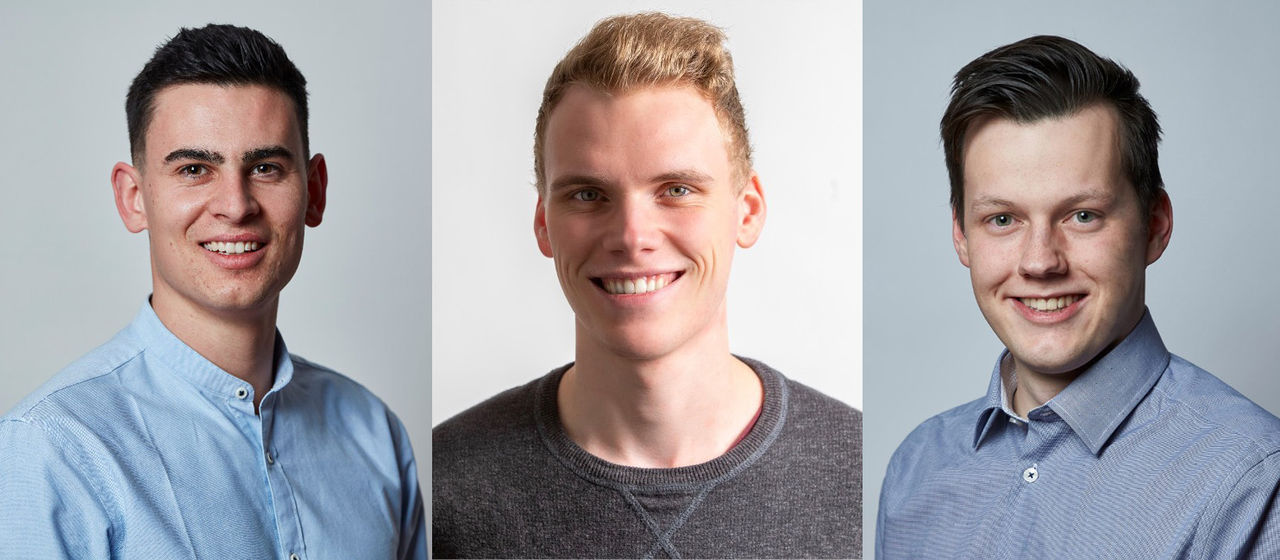Business engineering and innovation students from Switzerland’s Lucerne University of Applied Sciences and Arts had the opportunity to work with ABB Turbocharging this spring. The group worked on an 6th Semester (i.e. Spring term of their third year) project to create insights and suggestions for the further development of the company’s digital offering.
ABB Turbocharging’s Michael Daiber, head of strategy and business development, was delighted to work with the university’s Professor Bastian Widenmayer to organize the project.
ABB was keen to support the students in their studies and help them understand the complexities of the markets in which it works. The opportunity for students to work on real, ‘live’ business challenges is potentially very valuable, and we hope their involvement might help them to find future employment that fits their aptitudes – perhaps even at ABB. In return, it’s extremely educational for us at ABB to tap into insights, questions and ideas from people with an entirely fresh perspective on the challenges and the market.
“The project was a business model challenge to optimise part of ABB’s offering in a digital way,” explains Thomas Erhard, one of the students in the group. “We were looking for new, digital business models that would allow ABB to improve, but it was very open in terms of the approach we took. The premise was to show ABB what additional digital opportunities they could pursue,” adds Nando Piller, another of the project group. A third student, Lukas Umiker, explains why the group were keen to be a part of the project: “ABB is a famous company in Switzerland and is well-known for its technology credentials – so it was an amazing opportunity for us.”
Deep dive into turbo tech
ABB’s Turbocharging division provides its customers with new turbochargers, offerings around service as well as digital offerings like Tekomar XPERT. The student group were inducted into ABB’s business and its products, as well as its customers, by experts from the company, with the focus falling especially on new ways to exploit and expand on digital opportunities. “We were able to ask any questions and put in a lot of desk research to understand more about the industry. It’s really quite different,” says Thomas.
The group quickly discovered that the marine industry is both larger and more complex than most people outside it understand: “We had a lot of ideas, then quickly came to realise that a lot of them already exist,” notes Lukas, “We also came to understand that the market is enormously price-sensitive.” Nando adds that he was surprised to the extent that the marine sector has already adopted digital transformation.
The project soon became more complex and detailed than previous ones the students had worked on. Significant parts of this were working closely with a real-life ‘client’, managing call and meetings and working on presentations, for example. The other aspect was working in depth on specific details and calculations around investments and other areas – which took the students further into the deeper complexities of their planned future careers than other projects.
 A photo of Lukas, Nando and Thomas (left to right)
A photo of Lukas, Nando and Thomas (left to right)
Learning objectives
Thomas says that one of the key learnings from the project was the requirement to narrow down on specific issues: “There are lots of problems available. But to make progress, you have to single out the one you really want to work on.” Nando and Lukas agree that the process getting into the details of an unfamiliar topic, the language and layers of a different industry sector, and adjusting their optics as to its true nature, was the most rewarding part of the project.
Bastian Widenmayer highly welcomed to collaborate with ABB: “It was great to work with Michael and Selina. Throughout the project, they have always been open-minded in reflecting on the students’ work. They gave advice when needed and enhanced radical thinking. This formed a basis for a mutual learning environment.”
The project culminated with a presentation to ABB business development leaders, summarising hundreds of hours’ work in just ten minutes. “The results speak highly about the work of the students,” says ABB business development manager Selina Brendle. “They got themselves familiar with the market and customers’ wishes and produced some creative and suitable results. Certainly, if further opportunities for collaboration with students arise, we’ll be happy to get involved.”














